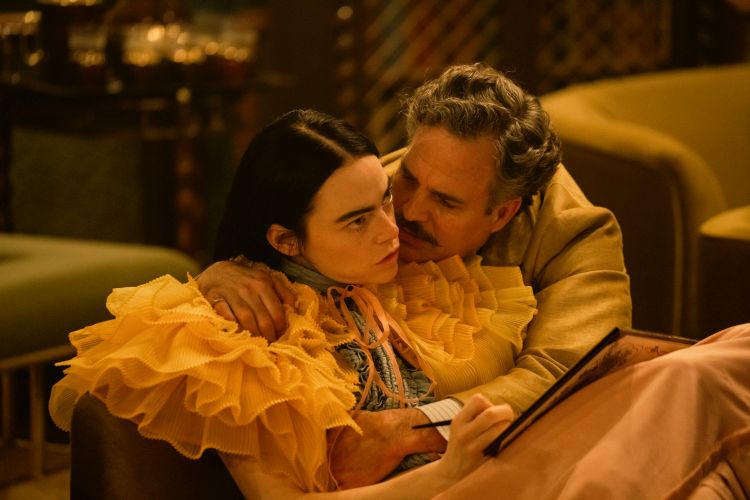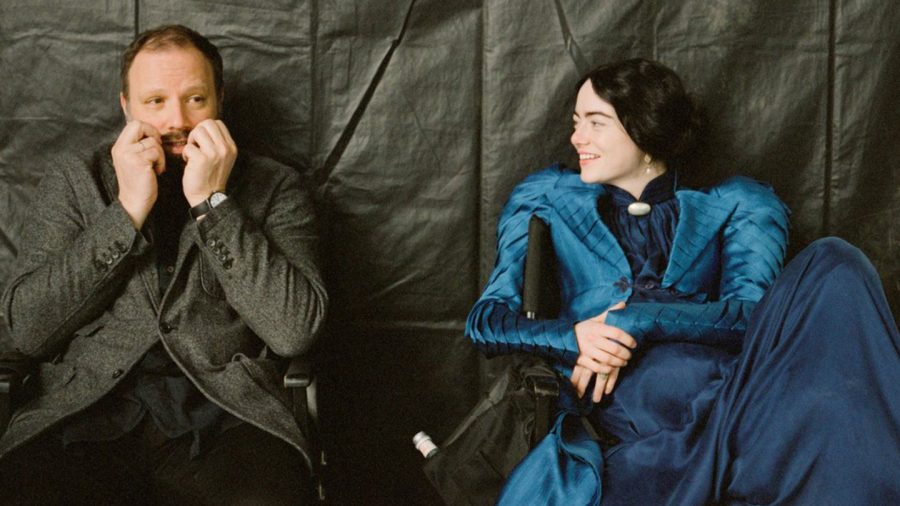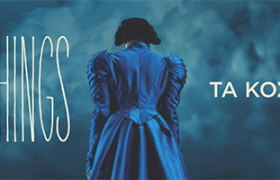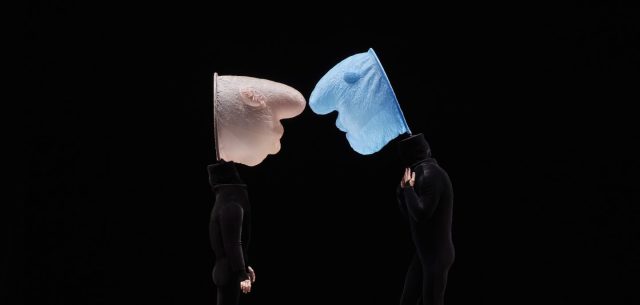Lanthimos’s Poor Things is worth watching — but with a critical eye

For its bewitching visuals alone, Athenian director Yorgos Lanthimos’s latest film Poor Things stands tall as the season’s must-watch. The film’s sets, costumes and color palette commit to making each frame a visual masterpiece. But is Poor Things really the subversive, inventive spin on Frankenstein it claims to be, or, are we merely charmed by Lanthimos’s rose-colored camera lens? Michael Pincus reviews.

Emma Stone and Mark Ruffalo in POOR THINGS. Photo by Atsushi Nishijima. Courtesy of Searchlight Pictures. © 2023 20th Century Studios All Rights Reserved.
I went into Poor Things expecting a weird movie. I’ve seen Lanthimos’s other landmark films — Dogtooth, The Lobster, The Killing of a Sacred Deer and The Favourite — all of which were unafraid to get freaky if not unearthly. Lanthimos certainly delivers his signature offbeat style yet again in Poor Things, and significantly so thanks to an eccentric performance by Emma Stone.
Poor Things adapts the 1992 novel of the same name by Alasdair Gray, following Bella Baxter (Stone), a reanimated woman (I’m careful not to use the word “monster” here) as she learns speech and attempts at womanhood, albeit in a sheltered, male-dominated environment. The surgeon who brings her to life, Dr. Godwin Baxter (Willem Dafoe) hires one of his students, Max McCandles (Ramy Youssef), to help track Bella’s psychological progress. Max and Bella soon get engaged, but their romance is threatened when Bella becomes infatuated with handsome-yet-loutish lawyer Duncan Wedderburn (Mark Ruffalo) and accepts his offer to see the world outside of the Baxter mansion.
What emerges is an imaginative voyage across a steampunk-influenced, era-defying Europe, complete with Stone’s unforgettable performance of Bella maturing from infantry into adulthood, demanding her own autonomy. Yet, Lanthimos is never able to shed the obviousness that Bella’s story is directed by a man.
Bella’s arc comes primarily from her use of sex as empowerment. But what’s left unaddressed is the fact that — spoiler alert — she is still mentally a child (her new surgically-inserted brain is literally that of a baby) when she begins having sex and joins a brothel. The audience is supposed to view Bella’s sexuality as agency, but we are paradoxically shown that she does not understand what she is doing, at least initially.
It’s compelling to appreciate Lanthimos’s unrestrained portrayal of sex and female pleasure throughout the film. Yet, Bella’s mental age makes her sexual adventures feel like a man’s fantasy above all else. The plot’s later threats of female genital mutilation certainly do not help.
Still, it’s clear the movie intends to be feminist. Male characters are punished for their violence, egos and spitefulness. Class inequality and capitalism are criticized, too. Female masturbation is celebrated. The audience is drilled with the message that Bella is a self-made woman; that her creation is not indebted to any man or genius scientist. However, these portrayals are not enough to mean that Lanthimos, a man, succeeds in making the feminist Frankenstein (a timeless story that was, importantly, written by a woman).
 Despite its flawed messaging, Poor Things is still movie that should be watched, especially on the big screen. It’s also a movie that should be watched through a critical lens, one informed by fourth-wave feminism. The feature is entertaining throughout; it’s funny and alluring. Its script and its actors work symbiotically to deliver delightfully bizarre dialogue. Stone doesn’t let Bella’s absurdities make her any less charming. The jokes almost always land. And again, its visuals stand out as inventive and supernatural. And if none of that sells you the ticket, then watch it simply because Lanthimos is Pangrati’s very own.
Despite its flawed messaging, Poor Things is still movie that should be watched, especially on the big screen. It’s also a movie that should be watched through a critical lens, one informed by fourth-wave feminism. The feature is entertaining throughout; it’s funny and alluring. Its script and its actors work symbiotically to deliver delightfully bizarre dialogue. Stone doesn’t let Bella’s absurdities make her any less charming. The jokes almost always land. And again, its visuals stand out as inventive and supernatural. And if none of that sells you the ticket, then watch it simply because Lanthimos is Pangrati’s very own.
Poor Things is showing at Village Cinemas until March 6. Book your tickets now!













